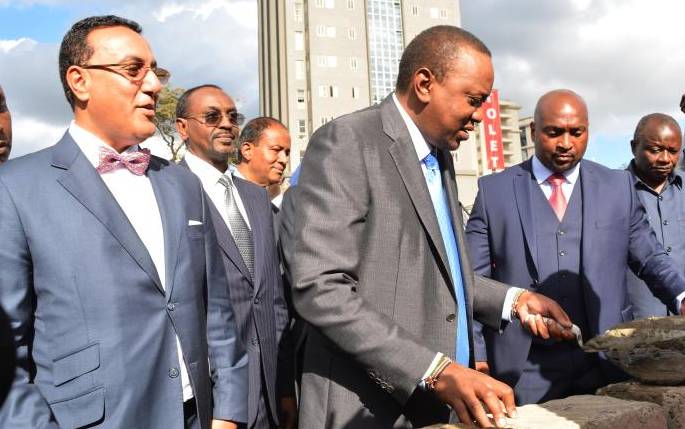×
The Standard e-Paper
Home To Bold Columnists

President Uhuru Kenyatta lays the foundation stone of The Pinnacle (formerly Hass Towers). It is to become Africa's tallest building. Beside him (left) is the Tourism Cabinet Secretary Najib Balala. [File, Standard]
When President Uhuru Kenyatta laid the foundation stone for construction of The Pinnacle Tower on May 23, 2017, there was a palpable enthusiasm for what was to become Africa’s tallest building.